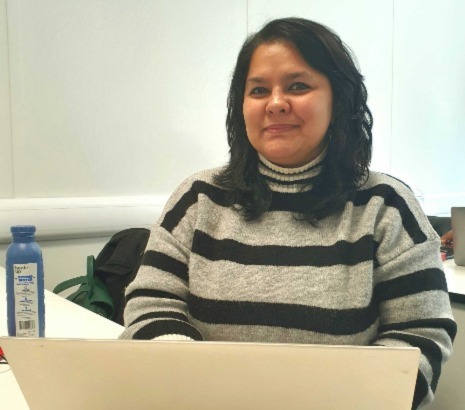Farah - Learning to think outside the box on my Journalism and Media course

Learning to think outside the box on my Journalism and Media course
It’s a Wednesday afternoon, and we’re attending the Writing for Magazine class with Sharon Maxwell Magnus, a veteran journalist and our lecturer for the module. I remember this day clearly. We were falling into that afternoon lull when Sharon decided to give us a break, albeit one filled with a purpose. “Go find stories,” she said. “Look around you and find three stories on which you think we can write a news report.” Assigned into groups of threes and fours, we had fifteen minutes to grab a coffee and commence a search for stories.
I thought this exercise would be easy. We’d just go around and look for something to report back. Little did I know that finding a story in fifteen minutes is not as easy as it sounds. I could hear Sharon’s teachings over the past weeks lingering in my mind: think outside of the box. Many questions arose in my head as a result. Should we talk to a student on campus and ask them about their experience? Should we talk to staff members? If that wasn’t enough, would it be okay for other people if we randomly approached them with questions? What were our ethical concerns? More importantly, what was the unique angle we’d come back to class with? Suffice to say, that simple exercise changed how I understood and perceived journalism.
I used to think journalism was about reporting facts, stories, or events that have already occurred. Never did it occur to me that you could go out, hunt for stories, and come back with a dozen topics to report on. Perhaps, a successful journalist’s key skill is not reporting but having an eye for impactful stories that the rest of us are oblivious to.
My group found three stories during our fifteen-minute break. We saw some people walking a dog on the campus, stirring the question, ‘are dogs now allowed on campus?’ Some of our other classmates met with other students to find out about their experiences and how they were coping with the cost-of-living crisis. When our class returned from their break, we all had stories and topics to share.
Sharon went around the class listening to our topics and ideas. She prompted us to think deeper. Our story about a dog on campus took multiple directions; from discussing if pet bans are justified to reviewing university policies and extending the story to cover universities across the country. I could never have imagined a dog on-campus sighting could lead to so many potential & impactful stories! It was then I realized a journalist’s fundamental challenge isn’t the writing, the deadline, the research, or the report. It is primarily the ability to craft an angle that grabs the attention of the audience and resonates with them. You have to tell stories that matter.
Over the course of the module, as we worked on our assignments, we also learned about ethical concerns, defamation, and the legal repercussions that come as part of the job. We were trained to respect deadlines, ensure the integrity of our reporting, and, most importantly, develop interviewing and research skills. Needless to say, I was positively challenged on this course.
Towards the end, as we received our final feedback, I asked Sharon if she believed I had it in me to pursue journalism. She answered with a piece of advice, “In journalism, it’s not how talented you are. It’s how reliable you are.” She encouraged me to go ahead and overcome my fear because it’s not about how creative you are; it’s about whether you’re the person that can get the story done on time before everyone else.
This short 3 month module, along with the other modules I took on the course, challenged my journalistic instincts and empowered me to step into a role I had only dreamed of. I have been empowered to believe I can make an impact. All I need is to get started!